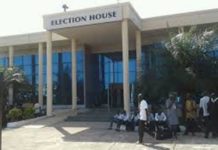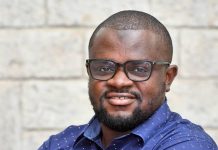By Louise Jobe
The International Institute for Democracy and Election Assistance (IDEA) on Thursday 16 September, 2021 started a three days training of Gambian media and civil society organizations (CSOs) on conflict sensitive reporting and use of social media in elections.
The training is being held at Sir Dawda Kairaba Jawara International Conference Hall in Bijilo.
Sait Matty Jaw, the executive director of the Center for Research and Policy Development (CRPD), said the media plays a crucial role in a democracy and to fulfill their roles, the media practitioners need to maintain a high level of professionalism, accuracy and impartially in their coverage.
Jaw also said regulatory frameworks can help ensure high standards, while laws and regulations should guarantee fundamental freedoms essential to democracy, including freedom of information and expression, as well as participation.
“Meanwhile, provisions such as requiring government media funded out of public money to give fair coverage and equitable access to opposition parties help ensure appropriate media behavior during elections,” he said.
According to him, the media has traditionally been understood to refer to the printed press as well as radio and television broadcasters.
“In recent years, however, the definition has become broader, encompassing new media, including online journalism and social media. Citizen journalism is widely gaining traction, including in countries where traditional media is either controlled or strictly regulated,” he said.
Director Jaw said election campaigns across the continent are often charged moments as contenders try to maximize their chances of winning.
“Running for an election and mounting one’s campaign is often costly, monopolized by small elite, disadvantages women and the youth and the Gambia is not an exception,” he said.
The training has been designed to provide journalists with an understanding of conflict sensitive reporting and their relevance in the organization of peaceful, balanced and inclusive elections.
Mr. Jaw said campaign coverage requires journalists to ask or dig for appropriate questions albeit controversial, problematic or at times dangerous.




















